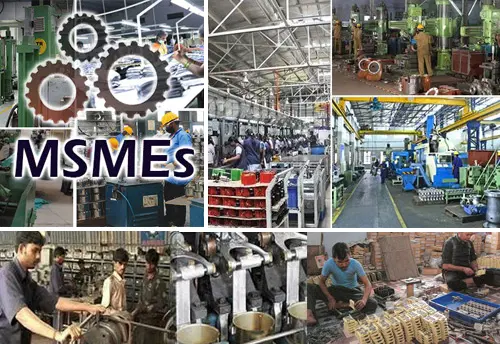Nigeria’s long-term aspirations for industrial success are inextricably linked to the efficiency and scale of its millions of small and medium-sized businesses (MSMEs), which constitute the foundational engine of the national economy. This was the consensus among experts at a recent press briefing previewing the 11th Policy Dialogue Series on Entrepreneurship by the FATE Foundation.
The dialogue, titled “From Enterprise to Industry: Unlocking MSME Potential for Nigeria’s Industrialisation,” centers on the urgent need to integrate micro-level entrepreneurial activity with macro-level industrial strategy to achieve meaningful diversification and sustained economic expansion.
Integrating Enterprise and Industrial Policy
Cecilia Akintomide, Chairperson of the 2025 PDS Technical Committee, underscored the core message: “We can no longer approach entrepreneurship and industrialisation as separate variables.” She stressed that for Nigeria to achieve resilient, long-term growth, the two concepts must converge rapidly.
She explained that while MSMEs account for over 84 percent of national employment, many remain trapped in activities characterized by low productivity. This means that although entrepreneurial activity is widespread, it is not yet generating the requisite industrial strength needed for significant economic transformation.
According to Akintomide, the nation’s industrial future will not be architected by a handful of large conglomerates, but by an aggregate of millions of small-scale producers who collectively enhance their capabilities, improve output, and scale up, thereby powering a more inclusive economy.
The FATE Foundation is scheduled to launch two major reports next week to further inform this critical debate: the 2025 State of Entrepreneurship in Nigeria Report and the eye-opening “Beyond the Hustle: Nigeria’s Industrial Reawakening.”
Addressing Firm-Level Roadblocks
Femi Egbesola, Vice-Chair of the PDS Technical Committee and President of the Association of Small Business Owners (ASBON), brought the challenge down to the operational level. He highlighted the daily struggles faced by small businesses—including perennial issues with power supply, logistics, access to finance, and policy inconsistency.
Egbesola emphasized that these are not abstract problems, but critical bottlenecks that dictate the survival or failure of businesses. He cited findings from the forthcoming report, which clearly articulate that these firm-level obstacles must be eliminated if Nigeria hopes to industrialize sustainably.
“Industrial policy must be conceptualized from the ground up, starting where the entrepreneurs are,” Egbesola asserted. He defined industrialization beyond a mere policy slogan, describing it as the practical enabling of production, the creation of quality jobs, and the establishment of robust domestic value chains that retain and circulate national wealth.
The current industrial trajectory, he observed, is “top-heavy and bottom-fragile,” where a few large players dominate while the vast majority of smaller enterprises are restricted to survival mode.
Amaka Nwaokolo, Director at The FATE Institute, noted that the Policy Dialogue Series has evolved over the past decade into a critical national platform, with this year’s focus marking a significant “critical pivot from entrepreneurship for survival to entrepreneurship for structural transformation.”

